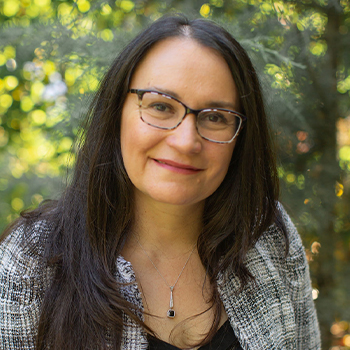Trauma is a common experience that can have a profound and lasting impact on our lives. In fact, 50 to 60% of the population experience trauma at some point. Complex trauma is a type of trauma that results from exposure to a series of traumatic events. Relational trauma is a type of trauma that occurs when someone experiences abuse or neglect from essential people in their life. Both types of trauma can be debilitating.
If you’re struggling with either complex or relational trauma, you don’t have to suffer alone – we can help you get your life back on track. Keep reading to learn more about complex and relational traumas.
WHAT IS COMPLEX TRAUMA?
Complex trauma is a type of trauma that results from exposure to a string of chronic or traumatic events. The events may be interpersonal (child abuse, domestic violence) or non-interpersonal (natural disasters, accidents).
Complex trauma can have many negative consequences for victims, including:
- Difficulty regulating emotions and impulses
- Difficulty trusting others
- Flashbacks and intrusive thoughts about the traumatic event
- Problems with self-image.
Victims of complex trauma are also at increased risk for mental health disorders. They can manifest as PTSD, depression, and anxiety disorder.
WHAT CAUSES COMPLEX TRAUMA?
Complex trauma is repetitive, prolonged exposure to traumatic events. It’s different from single-incident traumas, like a car accident or a sexual assault.
Victims of complex trauma often don’t have time to process the experience before they’re exposed to another traumatic event.
Victims may have trouble regulating their emotions and memories, which can cause them to relive the traumatic events. They may also have problems with attention and focus, making it difficult to concentrate on anything else.
WHAT IS RELATIONAL TRAUMA?
Relational trauma is a type of complex trauma. It occurs when someone experiences abuse or neglect from essential people in their life. This can include parents, siblings, caregivers, or other close attachment relationships.
An example of relational trauma would be abuse from a trusted family member or caregiver. This can cause the person to feel unsafe in close relationships, which can lead to problems trusting others and forming healthy bonds.
This trauma can be very damaging, as it can shake a person’s sense of self and trust in others.
People who have experienced relational trauma often find it challenging to form close relationships later in life. They may have difficulty developing intimate relationships or may experience frequent conflict in their personal relationships.
HOW ARE COMPLEX TRAUMA AND RELATIONAL TRAUMA SIMILAR?
Both types of trauma often start in childhood and can have lasting effects into adulthood. They can both cause problems with trust, self-esteem, and intimacy.
Complex and relational trauma can be damaging and challenging to heal. Long-term traumas can increase the risk of developing mental health disorders such as PTSD, depression, and anxiety.
Both complex and relational trauma can cause various psychological and emotional problems. These can include difficulty trusting others, flashbacks, intrusive thoughts, depression, anxiety, and post-traumatic stress disorder (PTSD).
You can experience either type of trauma as an adult, even if the trauma occurred in childhood. And both complex trauma and relational trauma can have lasting effects on your mental and physical health.
HOW ARE COMPLEX TRAUMA AND RELATIONAL TRAUMA DIFFERENT?
While complex and relational trauma shares some similarities, there are also some critical differences between the two.
Complex trauma involves:
- Close attachment relationships
- Several traumatic events over time
- Imbalance of power
Relational trauma is a complex trauma caused by abuse or neglect from essential people in one’s life, such as parents or caregivers.
Relational trauma involves:
- Abuse or neglect from influential people in life
- One or a few people
- It can occur in childhood or adulthood
It should be mentioned that emotional or narcissistic abuse is more nuanced because the abuse is less obvious.
CAN YOU HAVE COMPLEX TRAUMA AND RELATIONAL TRAUMA AT THE SAME TIME?
Yes, it is possible to have complex trauma and relational trauma at the same time. Relational trauma is a type of complex trauma. So if you have relational trauma, you have experienced both types by default.
For example, a child abused by a parent over a long period can develop both.
In this case, the complex trauma would be caused by chronic abuse. In contrast, relational trauma would be caused by the parent-child relationship.
HOW ARE THESE TRAUMAS TREATED?
The treatment of either type will vary depending on the individual’s specific needs. However, some common treatments for relational trauma include therapy, medication, and self-care.
Therapy is often a crucial part of recovering from relational trauma. It can provide a safe space for individuals to process their thoughts and feelings about the traumatic experience.
Medication may also be prescribed to help regulate moods and emotions affected by the trauma.
Trauma can be complicated to treat, and it often takes a long time for people to begin to see results. Most people can eventually overcome complex trauma with patience and persistence.
METABOLIZING THE STRESS
You can’t get over complex or relational trauma without metabolizing the stress stored in your body. This requires a great deal of self-care.
Rest: Get plenty of rest and sleep. Consider taking naps when possible.
Exercise: Exercise releases endorphins, which can improve mood and help reduce stress.
Diet: Eat a balanced diet and avoid processed foods.
Self-reflection: Spend time alone reflecting on your thoughts and feelings.
Complex and relational trauma can be distressing and affect a person’s mental health. But, with proper treatment and care, you can overcome the challenges posed by these types of trauma.
FIND THERAPY IN SANTA BARBARA, CALIFORNIA
If you think you are experiencing complex trauma, or if you experience symptoms of past trauma, there is help. Seek help from a mental health professional who can provide you with support and resources for healing.
Call me at (805) 430-4277 or fill out the form on my website to schedule a free consultation. Let’s talk about how I can help you heal from complex trauma.


